When General de Gaulle published the first volume of his war memoirs in 1954, he signed only four presentation copies: for the Pope, the Comte de Paris (France’s royalist pretender), the President of the French Republic and Queen Elizabeth II. One of his associates remarked: ‘All de Gaulle’ was in that gesture.
But what was de Gaulle? Catholic? Conservative? Romantic? Arrogant? All these, surely, and not least ideologically eclectic. His political beliefs were not only enigmatic but were often vague in his own mind. When he took the world stage in June 1940 it was unclear whether he was a royalist, a Christian Democrat or even a proto-fascist.
This uncertainty was a major reason why many were suspicious of him — most damagingly, Franklin Delano Roosevelt. It took time for de Gaulle to become ‘de Gaulle’, as Julian Jackson puts it, and for this reason it is fruitless to try to track down the intellectual origins of ‘Gaullism’. Like many labels, it was first coined by his enemies. He did not begin with an ideology, but with passions, indeed obsessions, plus a few fixed ideas, such as the overriding importance of history and geography. His greatest passion was, as he wrote in the first lines of his memoirs, ‘une certaine idée de la France’ — the phrase that gives this book its title.
As Jackson notes, de Gaulle is the most written about Frenchman since Napoleon, and the Institut Charles de Gaulle continues to produce on an almost industrial scale. It is hard to see this as disproportionate. There are only a handful of examples in modern times of individuals making such a profound impact on their countries in so many mainly positive ways. Churchill, for example, may have moulded world history, but he did not change Britain. De Gaulle’s life is important on this side of the Channel too: no Frenchman since the Bonapartes has played such a role in British history.
A Certain Idea of France is more than just another, bigger, biography in English. Although, as Jackson notes, there is little new to be discovered about the man, he has written a comprehensive, scholarly biography that ought to remain for years the standard work. Foreign historians can more easily write about controversial figures in a way that avoids both hagiography and polemic, and this he has done. Furthermore, he has the skill and style to maintain a dramatic narrative over nearly 800 pages of text.
De Gaulle had greatness thrust upon him by the disaster of 1940. He was an extraordinary character, no doubt; a man of outstanding intelligence and extensive literary culture. But in normal times he would have served out his career as a professional soldier, mostly behind a desk, for he was too remote, Jackson observes, to have been a great commander. But in 1940, thanks to Churchill and the BBC, he became the voice of Free France — literally the voice, as hardly anyone inside France knew what he looked like. His demeaning and often unnecessary wartime struggles against other Frenchmen and against his British and American allies to ensure his sole command of all French Resistance and assert France’s right to be recognised as one of the victorious Allies, with himself as its uncontested ruler, are related even-handedly.
Less familiar to British readers is the rest of his career. After resigning in 1946, when his plans for political reform failed, he remained a brooding political presence until another national disaster, the Algerian war, gave him the opportunity to take power on his own terms. With France beginning to look like a banana republic, threatened by a military coup and the possibility of civil war, de Gaulle manoeuvred brilliantly behind the scenes, subtly encouraging others to take the dangerous steps that brought him to power in 1958 as the only man who could save the nation. As in 1940, de Gaulle did not have clear intentions, but when he realised what had to be done — to get rid of Algeria — he did it ruthlessly.
Only then could he change France’s political system to empower its government and downgrade parliament and the political parties: his Fifth Republic, which François Mitterrand (who later enjoyed it) attacked as a ‘permanent coup d’état’. As at other stages of his career, de Gaulle was uncertain of precisely what he wanted, and left the details to others. He was — and this is one of the leitmotifs of the book — a pragmatist, not a theorist. Whatever the strengths and weaknesses of the ‘republican monarchy’ de Gaulle introduced, it is the most consensual system France has had since the Revolution.
Old age is one of the problems of monarchy, and the final drama of de Gaulle’s career was the near-revolution of 1968, when, aged 77, he lost his grip. This saw what Jackson terms ‘the most extraordinary day’ of his life (29 May 1968), when he flew secretly to Baden to meet the commander of the French forces in Germany, General Massu.
Often presented as a masterly ploy to restore his authority, it was, in Jackson’s convincing account, a confused and impulsive action, possibly motivated in part by fear that the mob might storm the Elysée Palace. Nevertheless, Massu (whom de Gaulle had once sacked) somehow restored his confidence. So did Jacques Foccart, one of his most influential and unscrupulous henchmen, who organised the public demonstrations of support that shored up the government.
De Gaulle never recovered from the humiliation of mai soixante-huit, and he resigned the following year. He then set out with ferocious energy to write more memoirs, to encapsulate his legacy to the nation. But he suddenly dropped dead on 9 November 1970 of the same cause that had killed his father and brother. He had meticulously planned his funeral: monumental simplicity, and no politicians.
British readers will doubtless be interested in de Gaulle’s attitude to us — not least his cavalier public veto on 14 January 1963 of Harold Macmillan’s application to join the Common Market: ‘we are going to have some fun,’ he told his entourage. He intended European integration, in his own words, to be ‘the means by which France can become again what she has ceased to be since Waterloo’ — an ambition that Britain would hardly facilitate. His Anglophobia (he thought of Britain as l’Angleterre) was not only the product of wartime conflicts with Churchill, on which he constantly ruminated. It was a consistent part of his world view, dating from childhood memories of colonial rivalry, and it became if anything more virulent with age. One of many bizarre manifestations was his extraordinary shout of ‘Vive le Québec libre’ in Canada in 1967 — not an improvised response to an excited crowd, but calculated in advance. He saw it as a protest against British imperialism: he would ‘rather die’ than ‘go to Canada and toast the Queen of England’.
His view of the world was a strange mixture of the archaic and the far-sighted. He seemed, it has been said, a man of the day before yesterday or of the day after tomorrow. His 1963 veto is a perfect example: keeping Britain out of the EC then seemed to be a blinkered stand against the inevitable. But de Gaulle believed that politics was ruled by history and geography, and that Britain was too global to ‘shut itself up in Europe’. Prejudice, or foresight, or both?
A biography must be about personality, and de Gaulle’s personality emerges starkly from these pages. Undeniably, he was cold, obsessed, misanthropic, ruthless and cynical: he put all human actions down to fear or vanity. Significantly, his deepest emotional relationship was with his handicapped daughter Anne, perhaps the only person with whom he did not need to be on his guard. There is a funny side to his reserve — for example, when Macmillan tried to take him skinny-dipping in the Mediterranean, he refused to take off his uniform — but most of it is not funny at all. Warmth, gratitude and normal human feeling were not in the repertoire of ‘de Gaulle’ (as he often referred to himself). Chillingly, Jackson records that his reaction to the killing by the police of peaceful Algerian demonstrators in 1961 was to criticise the media who reported it.
For Jackson, the ultimate justification of de Gaulle’s career — and the final sentence of his book — is: ‘He saved the honour of France.’ He salvaged its pride, certainly. I prefer to think that its honour was saved by thousands of French men, women and children who faced torture and death in a selfless and anonymous struggle against tyranny. De Gaulle showed scant interest in their actions, suspected their motives and expressed precious little appreciation of their courage. He created a nationalist myth. But they were the reality.
Got something to add? Join the discussion and comment below.
Get 10 issues for just $10
Subscribe to The Spectator Australia today for the next 10 magazine issues, plus full online access, for just $10.
You might disagree with half of it, but you’ll enjoy reading all of it. Try your first month for free, then just $2 a week for the remainder of your first year.

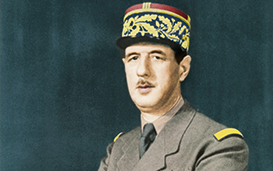
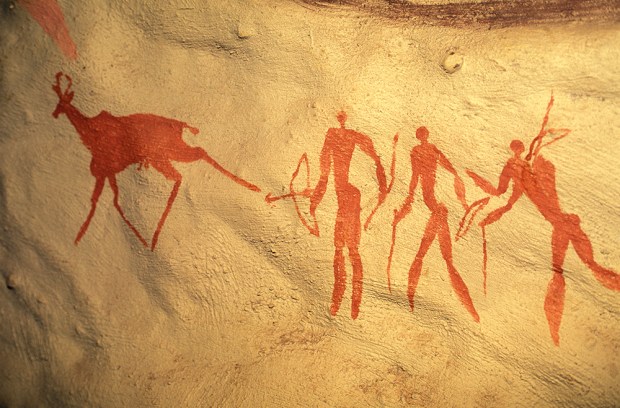


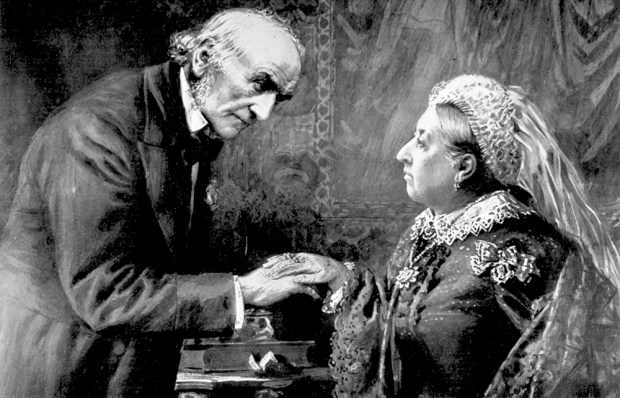
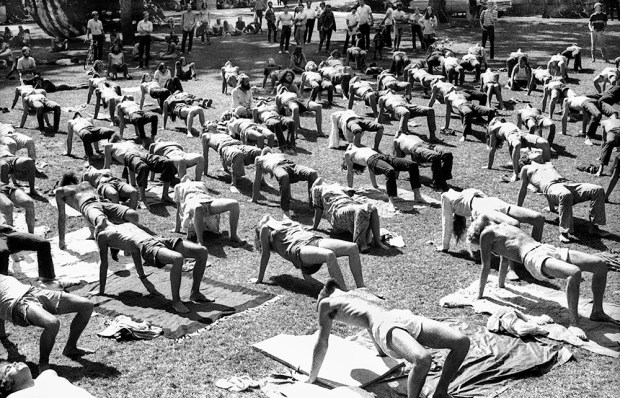
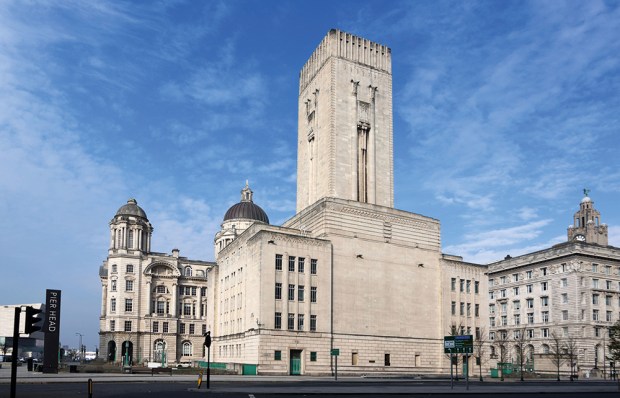






Comments
Don't miss out
Join the conversation with other Spectator Australia readers. Subscribe to leave a comment.
SUBSCRIBEAlready a subscriber? Log in